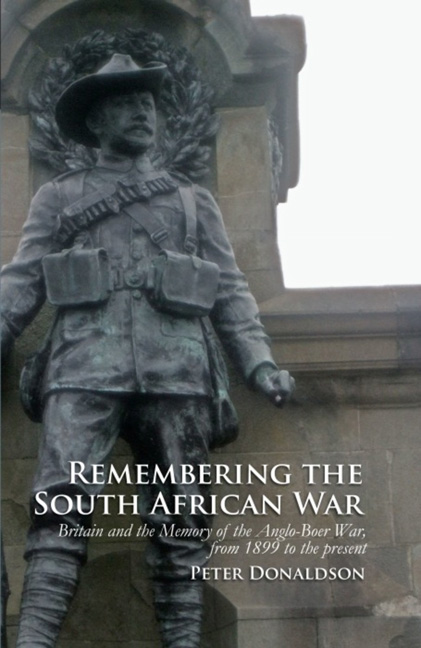 Remembering the South African War
Remembering the South African War Book contents
- Frontmatter
- Dedication
- Contents
- List of Illustrations
- Acknowledgements
- Introduction
- 1 Civic War Memorials: Public Pride and Private Grief
- 2 Pro Patria Mori: Remembering the Regiment
- 3 Vitai Lampada: Remembering the War in Schools
- 4 Alternative Affiliations: Remembering the War in Families, Workplaces and Places of Worship
- 5 Writing the Anglo-Boer War: Leo Amery, Frederick Maurice and the History of the South African War
- 6 Filming the War: Television, Kenneth Griffith and the Boer War
- Conclusion
- Bibliography
- Index
3 - Vitai Lampada: Remembering the War in Schools
- Frontmatter
- Dedication
- Contents
- List of Illustrations
- Acknowledgements
- Introduction
- 1 Civic War Memorials: Public Pride and Private Grief
- 2 Pro Patria Mori: Remembering the Regiment
- 3 Vitai Lampada: Remembering the War in Schools
- 4 Alternative Affiliations: Remembering the War in Families, Workplaces and Places of Worship
- 5 Writing the Anglo-Boer War: Leo Amery, Frederick Maurice and the History of the South African War
- 6 Filming the War: Television, Kenneth Griffith and the Boer War
- Conclusion
- Bibliography
- Index
Summary
AT the forefront of the communal commemoration of the South African War in Britain were educational institutions and in particular the great public schools. James Gildea, in his beautifully produced 1911 gazetteer of memorials, listed eighty-one schools that constructed memory sites in honour of old boys who died in the South African War. That such a large number of schools chose to commemorate the sacrifices of their alumni in this way should come as no surprise when one considers the guiding principles at the heart of a late Victorian and Edwardian education. As J. A. Mangan has noted, with an ethos underpinned by the twin imperatives of manliness and service guaranteeing a steady flow of enthusiastic school-leavers into the officer corps of the British army, the primary function of the public school system at this time was largely restricted to the production of ‘warrior patriots’. Certainly the empirical data seems to confirm this conclusion. Edward Spiers has calculated that 62 per cent of regular army officers who served in the conflict against the Boers came from public school backgrounds. Indeed, according to a survey undertaken during the war, this stranglehold can be narrowed down even further, with 41 per cent of officers coming from just ten schools and 11 per cent from Eton College alone. The inevitable corollary of this was that it was the great public schools which were hit the hardest by the mounting casualty lists coming out of South Africa. Unsurprisingly, given its service record, Eton College suffered the most with 129 old boys dying as a result of disease or enemy action in the course of the war.
Although some state schools erected memorials (Gildea lists five from his total of eighty-one), this chapter will focus on the public schools. Not only were these schools dominant in the officers’ mess, but, as Geoffrey Best has noted, they also enjoyed something of a cultural hegemony in the civil world as well. Citing as evidence the popularity of public school fiction in state elementary and secondary schools, Best has argued that there was a widespread acceptance in the non-public school world of the elite's cultural ideals and that these ideals ‘filtered downwards and outwards until they permeated the whole of society’.
- Type
- Chapter
- Information
- Remembering the South African WarBritain and the Memory of the Anglo-Boer War, from 1899 to the Present, pp. 81 - 105Publisher: Liverpool University PressPrint publication year: 2013


